Therapy can be an incredibly powerful process to help you work through your deep-seated issues, heal from trauma, and become a more confident, happy, and lively person. While some people have embraced counseling, others still believe it’s ‘shameful’ to ask for help from mental health professionals. But things aren't so easy for therapists either.
That’s where the ‘BigTherapyEnergy’ Instagram account comes in. It’s a project that’s dedicated to sharing witty and relatable memes about treating clients if you work in therapy. Through these memes, the entire process is destigmatized. We’ve collected some of the top memes to share with you, Pandas, so scroll down and enjoy them. Pssst—don’t forget to show these to your patient or therapist during your next session!
Bored Panda reached out to psychologist Miglė Vainalavičiūtė from Health Optimizing Vilnius, who was kind enough to share her thoughts on some of the challenges that mental health experts and their clients can face. You'll find the expert's insights as you read on.
#1
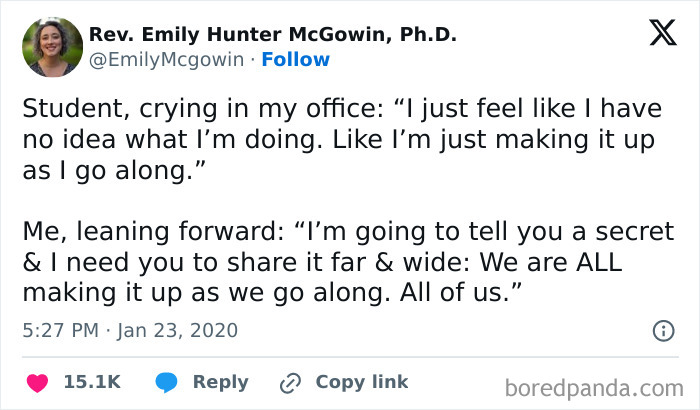
Image credits: bigtherapyenergy
Psychologist Vainalavičiūtė, from Health Optimizing Vilnius, shared her experience with the types of challenges that mental health professionals face when working with clients. According to her, one such challenge is identifying the underlying reasons why someone is facing emotional challenges. "Often, people ask for help for one reason, but during the process, other challenges emerge," she told Bored Panda.
According to the mental health expert, a client might sign up for some counseling sessions because of their divorce or difficulties in their romantic relationships. These challenges may be associated with some deeper-held beliefs and attitudes.
For instance, someone might find it hard to find the right partner because, ultimately, they severely lack confidence. Or they might be convinced that all relationships are 'doomed to fail' because of assumptions that they formed due to their parents' relationship.
#2

Image credits: bigtherapyenergy
#3

Image credits: bigtherapyenergy
"It's important to identify these issues, and only then can you start to seek real change. In order to even partially understand what a person’s life is like, you need time to get to know their history, values, and beliefs, as well as their origin,” she said.
The psychologist explained to Bored Panda that the entire process is very time-intensive. Moreover, it requires a lot of effort on the client’s side. It is not a passive process where experts do all the heavy emotional lifting for you.
“Often, people imagine that a few sessions and a handful of ‘magical’ pieces of advice are enough to solve problems that formed over decades,” the Health Optimizing Vilnius employee said.
#4
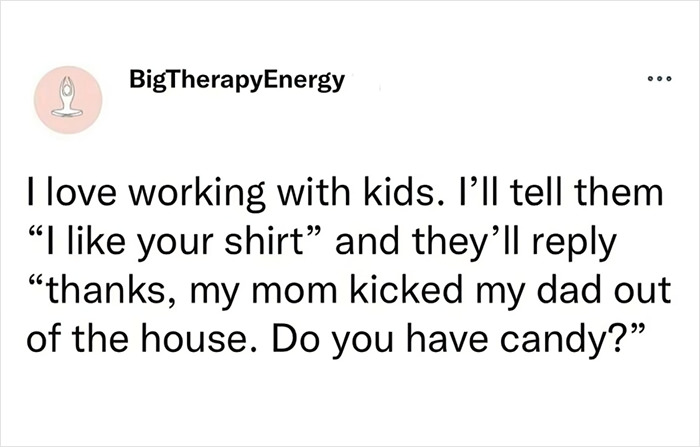
Image credits: bigtherapyenergy
#5
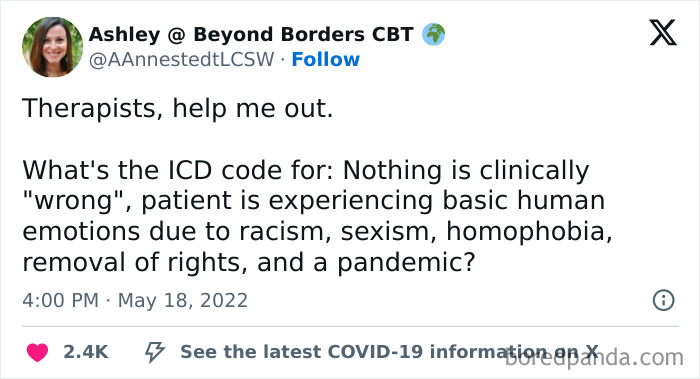
Image credits: bigtherapyenergy
#6
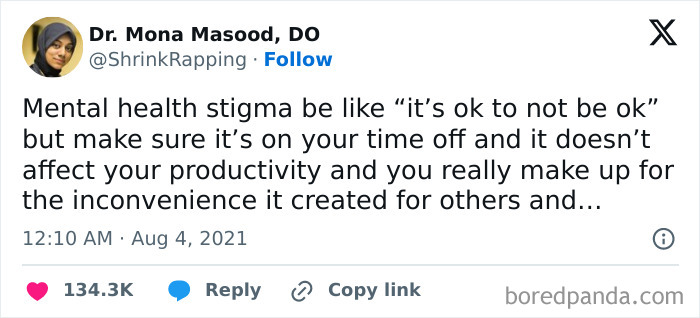
Image credits: bigtherapyenergy
“Once you find the source of the problem, it’s essential to focus on creating the change. This means slowly teaching clients how to notice their harmful behavior and limiting emotions in their daily lives.”
It’s also important that they know what strategies to use in order to ‘neutralize’ these behaviors and emotions. “A person who is scared of rejection and who becomes aware of this fact won’t immediately free themselves from this fear-influenced behavior,” psychologist Vainalavičiūtė warned.
“This behavior will likely continue, however, the person will now be aware of the reasoning behind it,” the expert said that the individual may continue rejecting others before others have a chance to reject them. At least for some time.
#7
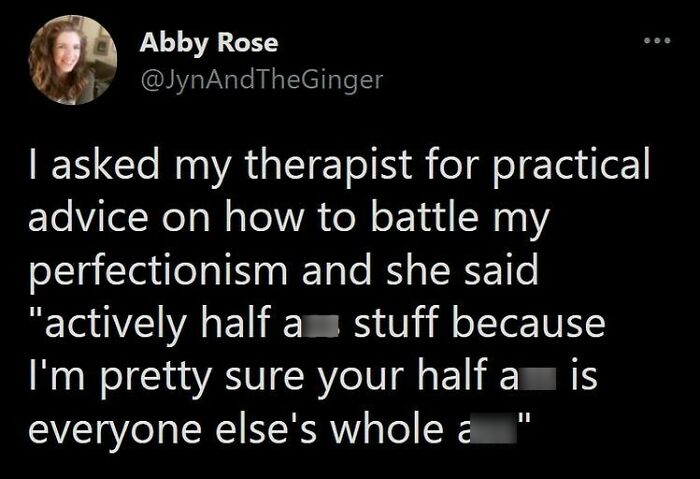
Image credits: bigtherapyenergy
#8
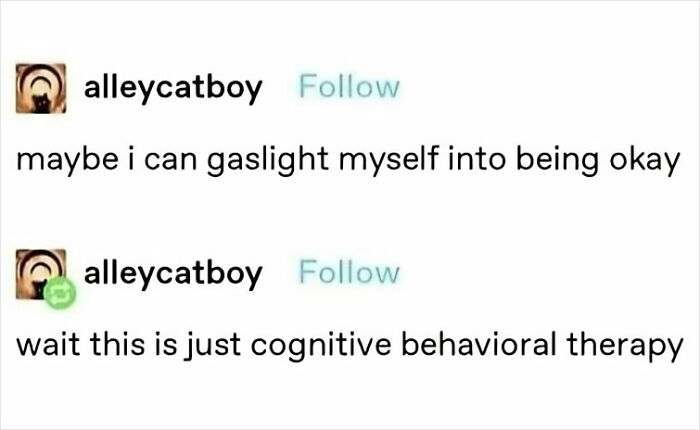
Image credits: bigtherapyenergy
#9
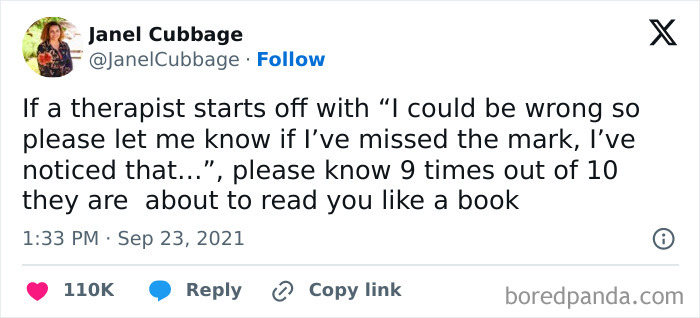
Image credits: bigtherapyenergy
“Eventually, the individual might ask themselves whether they reject others because they’re scared or if they’re doing so because they genuinely do not need the relationship anymore,” the psychologist told us.
“At times, it’s a challenge to help someone understand that a psychologist is just an assistant, leading them through a difficult process. However, the course of the process itself depends on the individual’s openness and motivation for change.”
#10

Image credits: bigtherapyenergy
#11
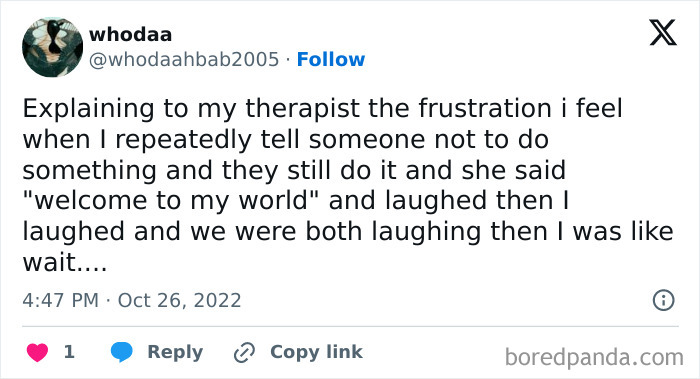
Image credits: bigtherapyenergy
#12
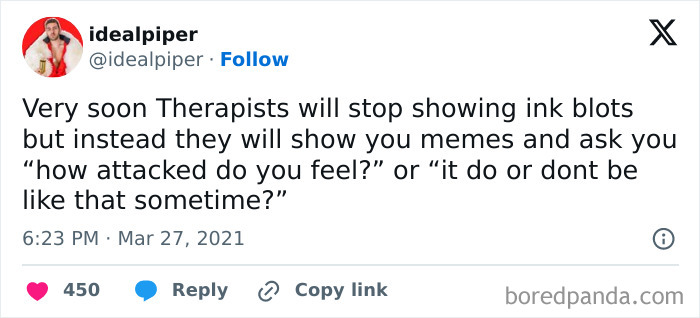
Image credits: bigtherapyenergy
The ‘BigTherapyEnergy’ Instagram page positions itself as a repository of funny therapy-related content. At the time of writing, the social media project had nearly 27k dedicated followers. They’re big fans of the sometimes subtle, sometimes blunt humor.
As much as therapy is increasingly talked about in the public sphere, it still remains a mystery and a stigma for some people who may be struggling with their mental or emotional health. The Instagram account is spreading awareness about counseling while also making everyone laugh. It also shows the more human and relatable side of therapists, who might be overworked and may not have everything 'perfectly' figured out in their lives either.
Humor and memes make the topics of mental health and therapy far more approachable and down-to-earth. Even if the problems you face are very serious, seeing them from a different (more lighthearted) perspective can inspire you to take action. Suddenly, your challenges don’t seem so insurmountable. Instead, they’re something that others are also facing. You are never alone.
#13
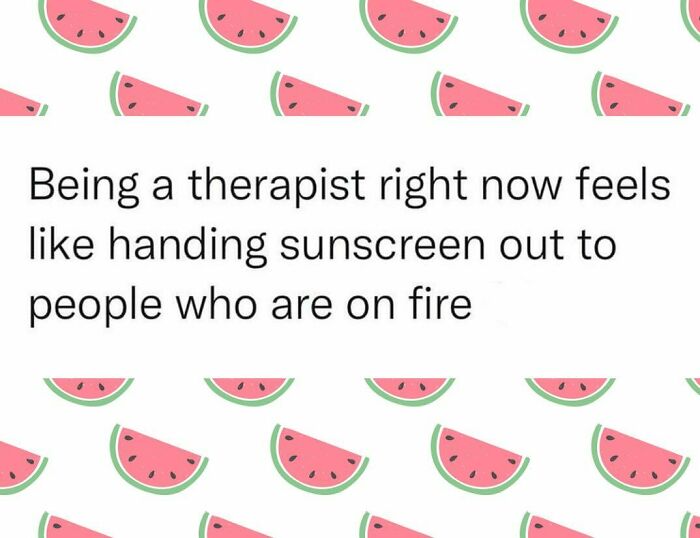
Image credits: bigtherapyenergy
#14

Image credits: bigtherapyenergy
#15
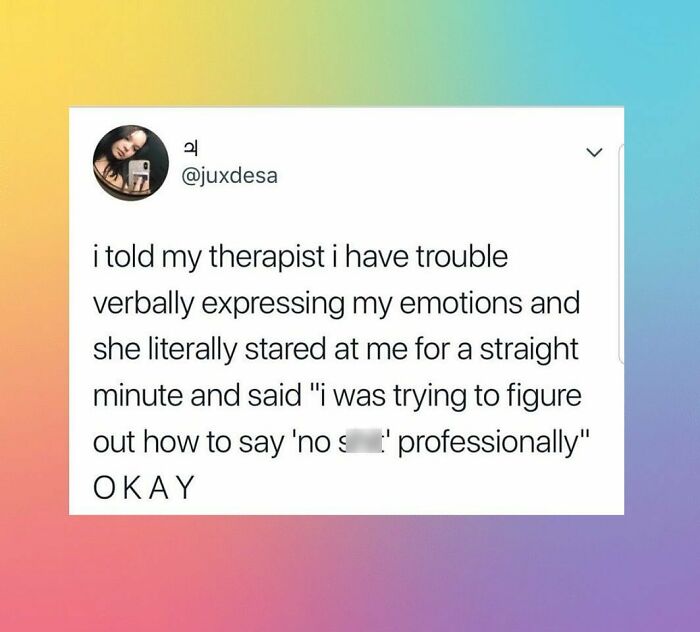
Image credits: bigtherapyenergy
Many people can boast about how therapy has helped them live a higher quality life. At the same time, other folks are very wary of seeking mental health counseling. And the specific reasons for this can be incredibly individualistic. However, there are some common threads.
Some of the skepticism arises because folks doubt the effectiveness of therapy as a whole. They have some very negative preconceptions, whether due to what they’ve read on the internet, watched on the news, or the gossip they’ve heard from their friends who have had less than stellar experiences. However, these aren’t firsthand experiences. You have to be willing to give therapy a try if the problems you’re facing are interfering with your daily life.
According to psychologist Loren Soeiro, Ph.D., some people believe that therapy costs ‘too much,’ that it takes up too much time, and that they can always talk to their friends about their issues. Naturally, it’s essential that you open up to your social network about the challenges you face. Their support is invaluable. However, you can’t expect the same results from a venting session with your friends as you would from a session with a qualified mental health specialist.
#16
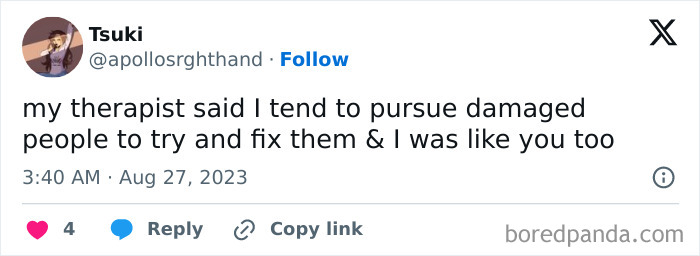
Image credits: bigtherapyenergy
#17

Image credits: bigtherapyenergy
#18

Image credits: bigtherapyenergy
Therapists aren’t your buddies: they are highly trained to listen to you, challenge you, and provide you with new insights, on a regular basis. You’re dealing with professionals here.
They most likely went for this career path because they wanted to help other people heal and grow in some capacity.
However, being vulnerable with a complete stranger is a tall order. It won’t happen overnight. You’ll learn to trust your therapist gradually. Step by step. Session by session. But you have to be willing for this to happen, instead of coming with an attitude that ‘this won’t work.’
Just because someone doesn’t nod along and validate all of your choices doesn’t mean that they’re not doing a good job. Quite the opposite.
#19

Image credits: bigtherapyenergy
#20
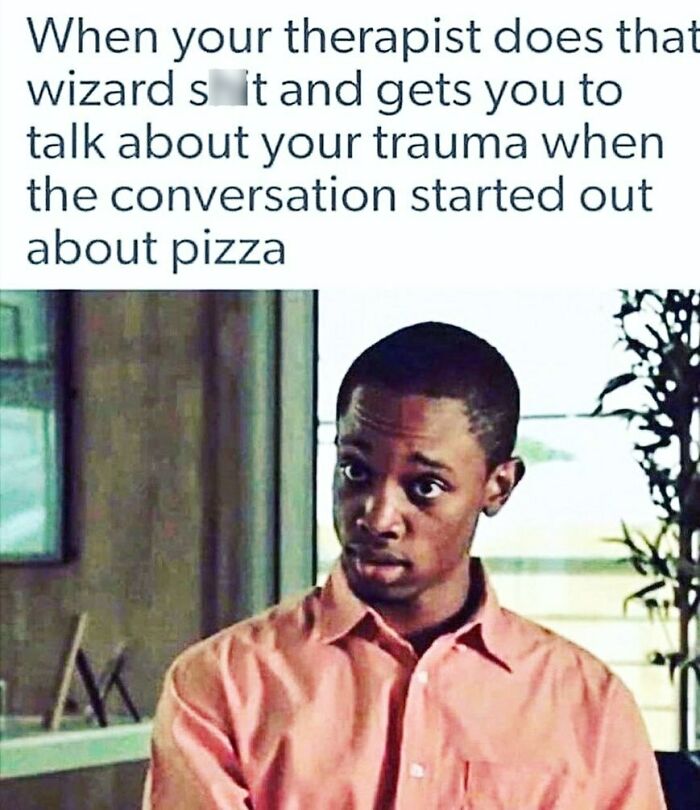
Image credits: bigtherapyenergy
#21
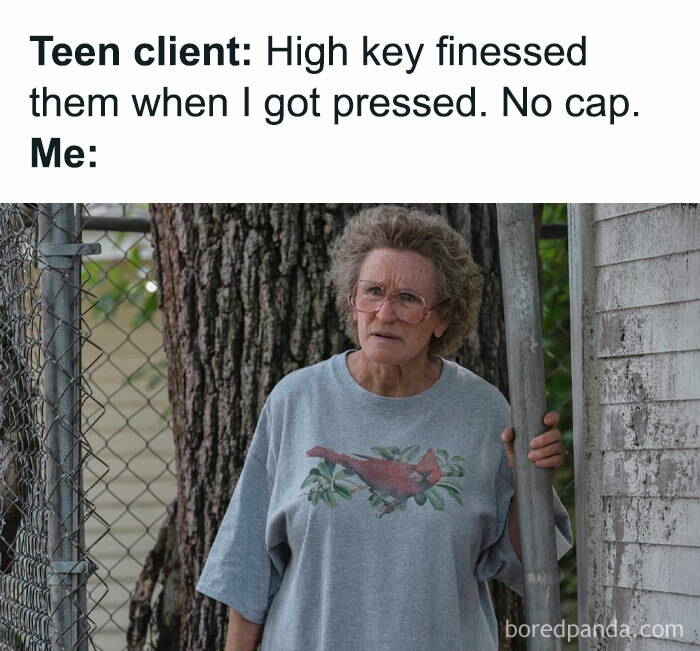
Image credits: bigtherapyenergy
At the same time, it’s vital that you find a therapist whom you click with. You should feel comfortable opening up to the specialist. If you find that very hard to do, you may want to consider talking to a different counselor. There’s nothing wrong with that. But you should not be settling for someone who only ever makes you feel ‘good’ about everything and anything.
You are meant to feel somewhat challenged. You are meant to feel like you’re growing, and like you’re getting insights into new ways to look at life and the world.
#22
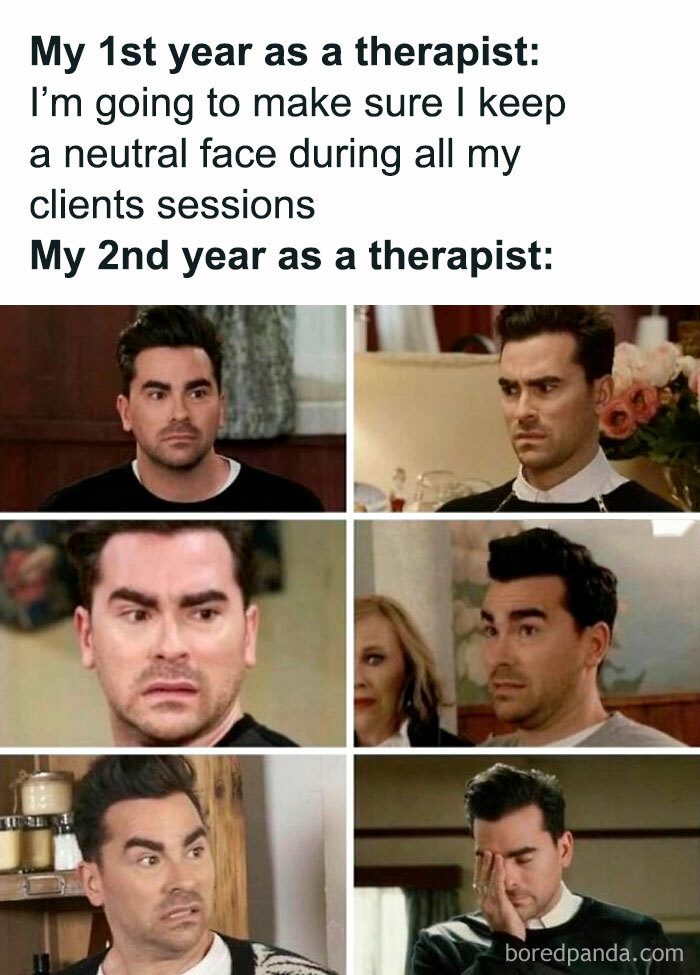
Image credits: bigtherapyenergy
#23
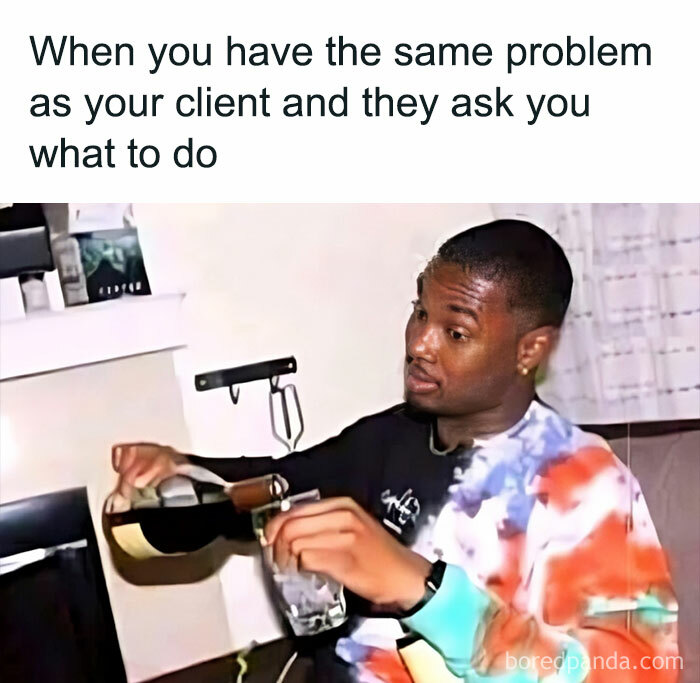
Image credits: bigtherapyenergy
#24
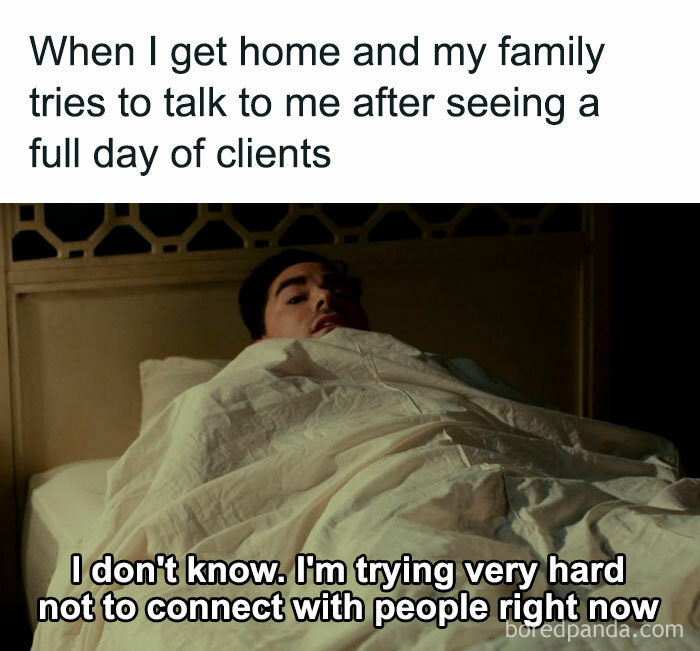
Image credits: bigtherapyenergy
A good therapist is going to focus their entire attention on you during your sessions. They won’t be looking at their watch or phone. They won’t be doing a crossword puzzle. They won’t turn the sessions around and talk about their own problems. They won’t gossip about you or their other clients. Capable and trustworthy therapists also refrain from judging you or anyone else. They offer advice without making you feel ashamed.
#25
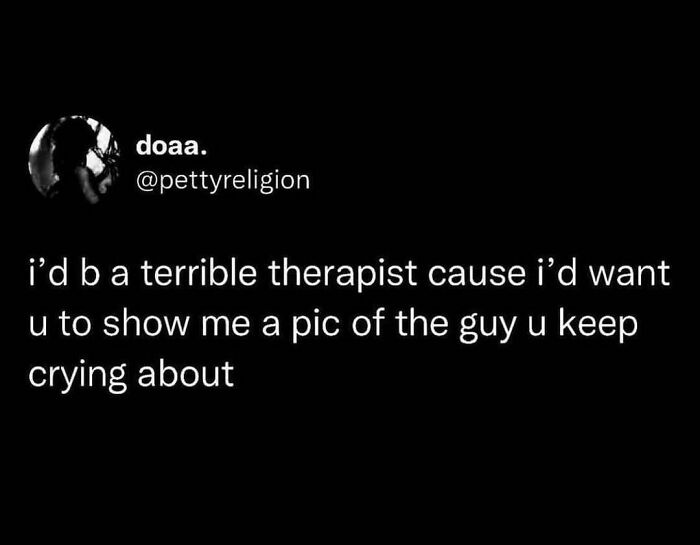
Image credits: bigtherapyenergy
#26

Image credits: bigtherapyenergy
#27

Image credits: bigtherapyenergy
Which of the memes in this list did you find the funniest and most relatable, dear Pandas? Did your therapist like any of them? What has your experience with therapy been like, overall? How do you plan on taking better care of your mental health this year? If you’re feeling up to it, you can share your thoughts and experiences in the comment section at the bottom of the post.
#28

Image credits: bigtherapyenergy
#29
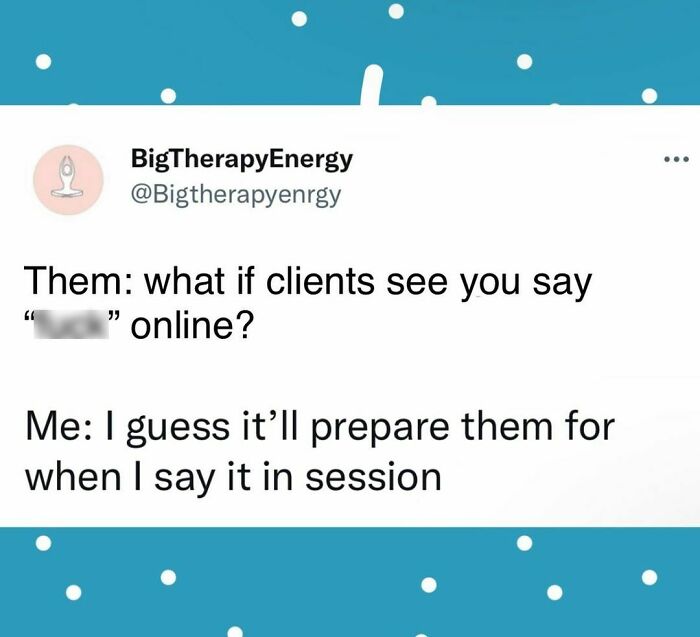
Image credits: bigtherapyenergy
#30

Image credits: bigtherapyenergy
#31
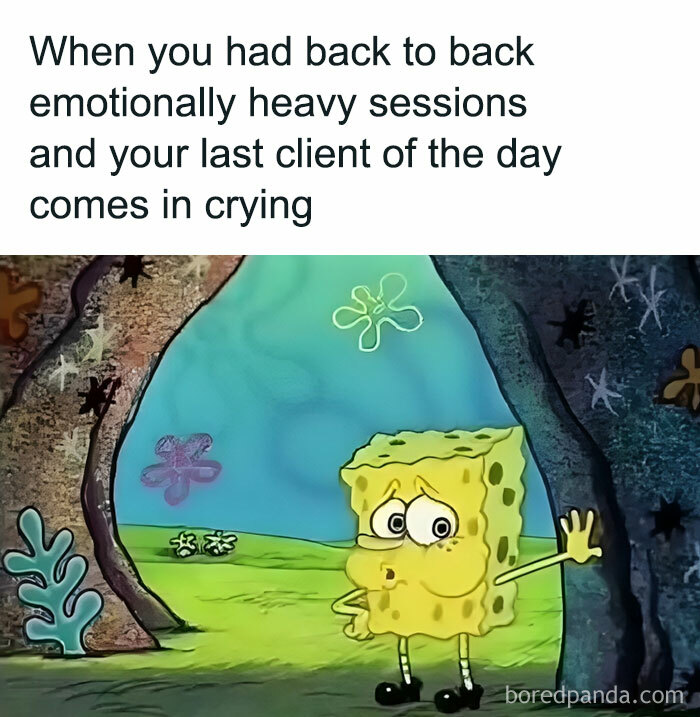
Image credits: bigtherapyenergy
#32
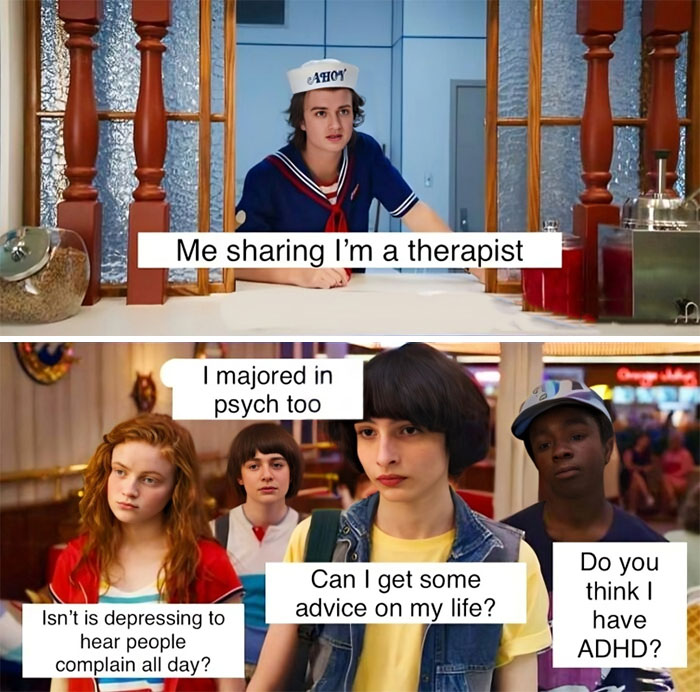
Image credits: bigtherapyenergy
#33
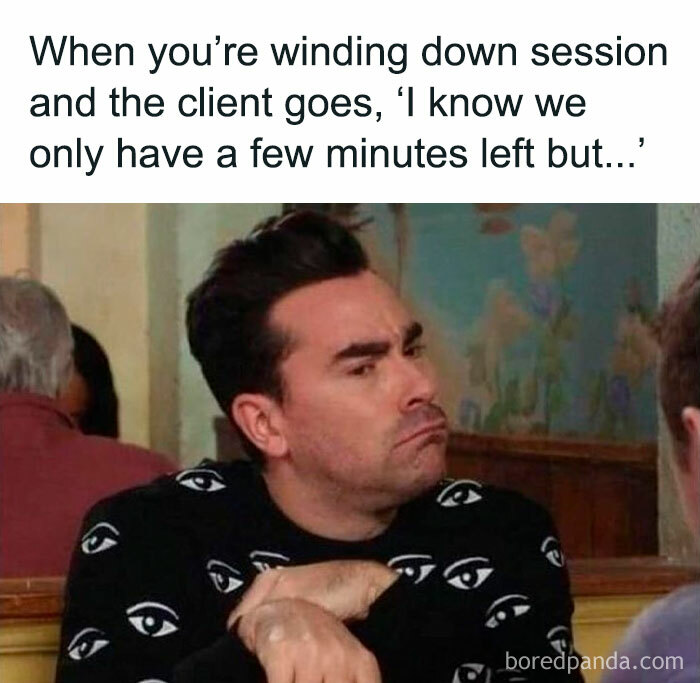
Image credits: bigtherapyenergy
#34
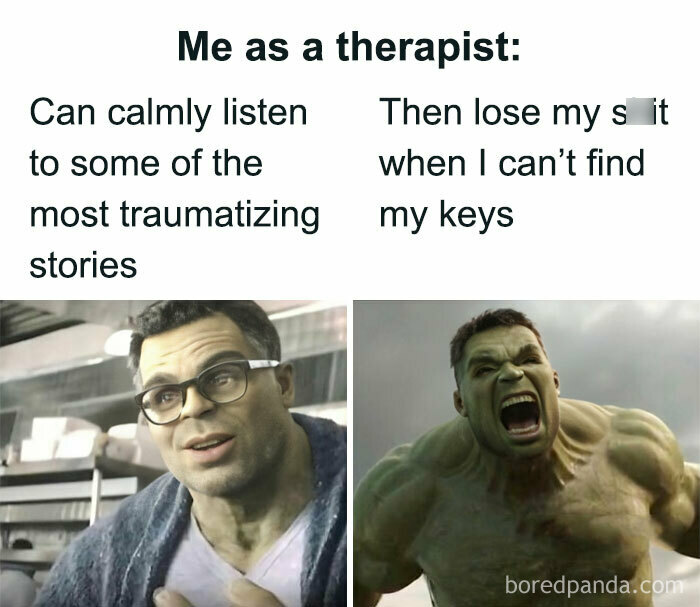
Image credits: bigtherapyenergy
#35

Image credits: bigtherapyenergy
#36
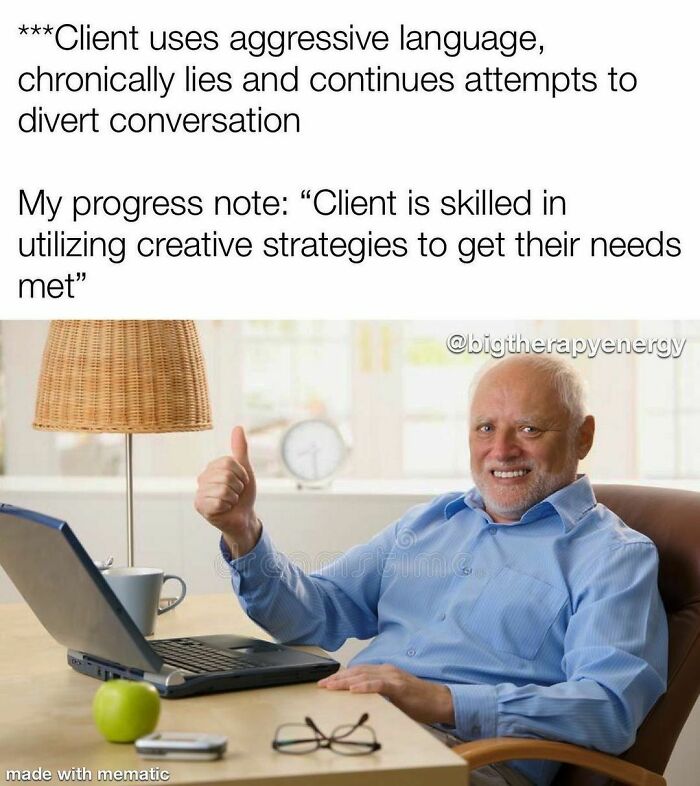
Image credits: bigtherapyenergy
#37

Image credits: bigtherapyenergy
#38
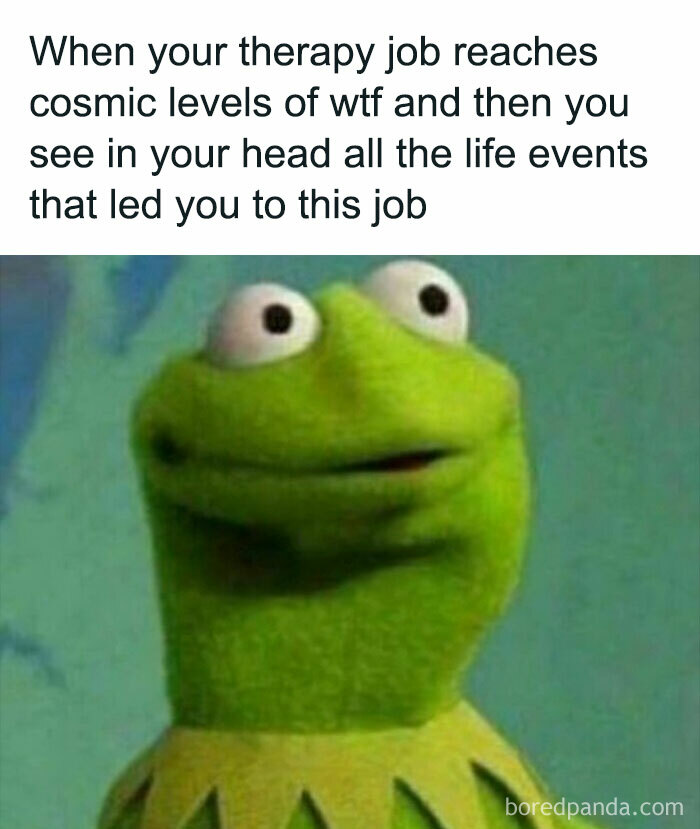
Image credits: bigtherapyenergy
#39

Image credits: bigtherapyenergy
#40

Image credits: bigtherapyenergy







